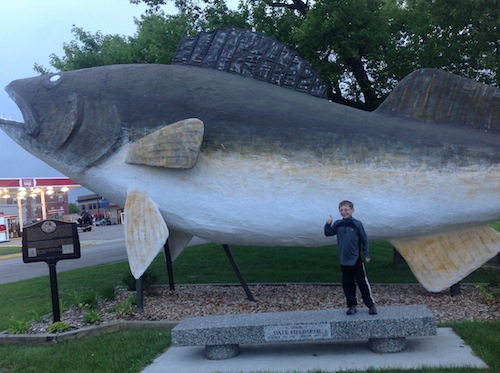The following conversation took place in the run-up to our annual summer camping trip recently.
Rachel has no interest in camping, so this ritual is all mine. I started the little ones young with a one-night trip within an hour from home so that we could come home if it’s a total disaster. As they have aged and we have developed our routines, we have gone further afield, exploring wide-ranging Minnesota state parks for two-night stays. We added a weekend fall trip, too.
Last summer, the kids began to ask why “we only go for two nights”.
Ladies and gentlemen, when the kids ask that question, you know you’re doing it right.
So this summer we are expanding to three nights. Tabitha was thinking about that change the other day.
—
I am straightening some things on the front porch, sweeping and tidying. Not thinking about anything in particular.
Tabitha (7 years old): If we’re going for three nights, is that 2 days and 2 half-days?
Me: Yes.
A few seconds pass.
I realize that I have an opportunity here.
Me: How did you think about that?
T: Every night is a day, except the last one, when we go home.
Me: What if we went for a whole week’s worth of nights? What if we went camping for 7 nights?
T: Easy. Six days.
Me: And?
T: Two half-days.
Me: OK. Ready for a hard one?
T: Yeah!
Me: There are 365 days in a year. So what if we went camping for 365 nights?
T: [slowly] Three…hundred…sixty…four!
Me: Nice!
T: I can even do 400.
Me: You mean 400 nights of camping? You know how many days that would be?
T: Yeah.
Me: All right. Tell me.
She does.
Later, she is in the shower. I am not-so-closely supervising nearby. I get an idea.
Me: Tabitha, what if we wanted seven days of camping?
T: How many nights?
Me: Right.
T: Eight. Am I right?
Me: I can’t trick you at all, can I?
T: Ask me another!
Again, a sign that things are going well. Contrast with her claim a couple years back, “Sometimes I don’t want to tell you about numbers because it’s just going to turn into a big Daddy math talk!”
I have to think hard to dig up something that will be more challenging for her.
Me: You want a hard one? A really hard one?
T: Yes!
Me: Last year, we went camping twice. Altogether, we camped 4 nights. How many days did we have?
T: Three…five…
It turns out that Griffin is lingering in hallway outside the bathroom. He chimes in.
Griffin (9 years old): Four.
Me: Two days, and four half-days.
G: Right. That’s four.
Me: But she’s thinking about it as four half-days, since they aren’t attached to each other. I can see an argument either way.
—
This summer’s trip was to Lake of the Woods in the far northern reaches of Minnesota.
So what do we learn?
It may surprise some readers that I have filed this conversation under Algebra.
Like many of the other algebra posts, we are not using x or y, or making graphs or solving for variables. Instead we are thinking about a relationship, and about what that relationship looks like for a wide variety of numbers.
The relationship we are working with here is a simple one: one less. Tabitha had noticed that the number of full days we camp is one less than the number of nights we camp. She had even generalized the idea—notice that she didn’t count the days individually. She said, “Every night is a day, except the last one.” This answer doesn’t depend on any particular number of days; it works for all numbers of days.
What I did in this conversation was help her to apply this idea. By asking her about a wide range of numbers of days, she got to feel the power of her generalization. That is algebra.
The other important part here was continuing the conversation while she showered. Thinking in reverse is an important mathematical skill. We had started with how many days do we get with a certain number of nights? I moved us to how many nights do we need for a certain number of days? The fancy math word for the relationship between these two questions is inverse.
Starting the conversation
Camping trips, vacations, trips to grandma’s house…these are all opportunities to have the conversation we had. If your child doesn’t ask about it, you can ask your child. We are going to grandma’s house for three nights—how many days will you have to play with your cousins while we’re there?
More generally, there are two Talking Math with Your Kids moves I want to emphasize.
- It took me a moment to notice that Tabitha had offered me an opening for conversation. I was thinking about something else at the time. When I noticed it, I put those other thoughts aside to talk, ask and listen. That part of the conversation took probably 2 minutes. We can all spare 2 minutes to get our kids’ minds working. We just need to notice the opportunities.
- I followed up later on. Following up is good for two reasons: It lets you and your child examine an idea more deeply, and it helps cement memory of the conversation. We remember something we revisit multiple times better than something we only think about once.

